"Others/Foreign Objects" in Post-War Japan: The Road to "Homecoming" of Kobo Abe, Akio Goto, and Kyoko Lin
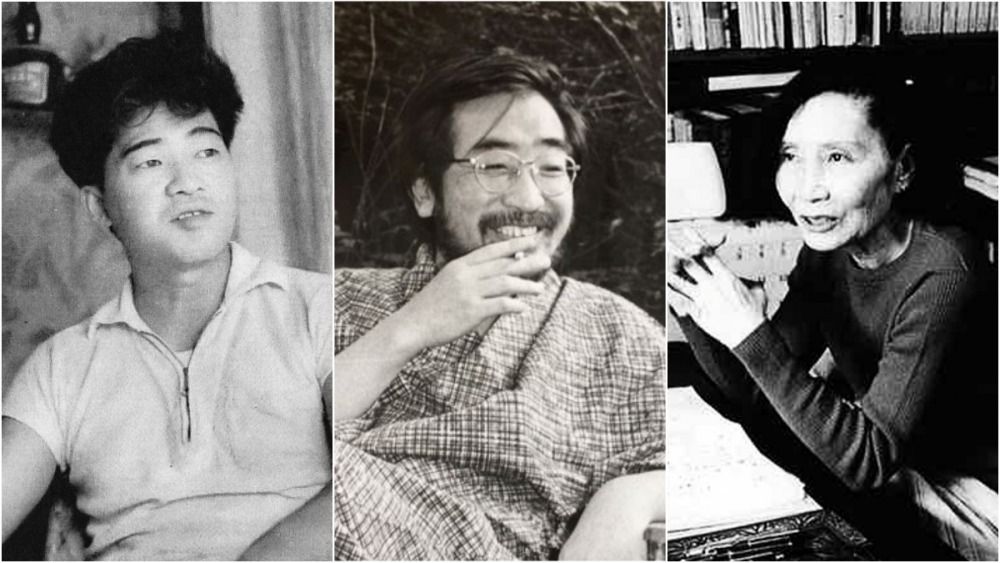
Author| Cai Yuling (literary worker)
In 2002, at the New Year's Concert at the Vienna State Opera, in order to greet audiences from all over the world, the organizers encouraged participants to say hello to the audience in their native language. At that time, the Japanese conductor Seiji Ozawa, who had just taken over as music director, suddenly said in Chinese: "Happy New Year".
Ozawa's slightly surprising choice is obviously not enough if he simply explains that "there are no Chinese musicians in the orchestra". The phrase "Happy New Year" is meaningful, including the background of Ozawa's growth as a second-generation colonial Japanese who was born in Fengtian (now Shenyang) and grew up in Beijing, as well as his childhood and the youth of his parents, and even more hidden Ozawa "Nostalgia" for China.
Ozawa's father, Ozawa Kaisaku, who was a dentist, was an enthusiastic advocate of Manchu colonization and one of the founders of the "Manchukuo" Association at that time. The name "Sei'er" comes from his two Kwantung Army friends, Itagaki Seishiro and Ishihara Kaner, which shows that the Ozawa family has a strong colonial atmosphere. Of course, at that time Ozawa was just an ignorant child who did not understand the complex and intertwined political wrestling and power struggles within the colony.
However, as the descendants of the former colonies, how should we think about this "Happy New Year"?
The phrase "Happy New Year" undoubtedly represents Ozawa's nostalgia for his childhood, a life experience shared by the second generation of the colony. At that time, many Japanese left their hometowns to take root in "foreign places" (Japanese overseas colonies) for survival or belief. And when Japan was defeated, among the nearly 7 million "introducers" (Note) who were repatriated to Japan from "outside areas" or battlefields, many of the second generation of the colonies did not get to know the so-called "mainland" for the first time until the repatriation ship docked. / homeland". However, what awaits them at this time is not the warm embrace from their compatriots after their return from disaster, but a series of losses - loss of identity, loss of "homeland", loss of memory, and loss of "hometown".
Note: "Introducer" refers to the Japanese who were repatriated from the former colonies after Japan's defeat. In the post-war Japanese context, this term has the meaning of distinguishing it from "native" and "pure" Japanese, which is slightly discriminatory, so it is marked with quotation marks in the text.

Many of them are obviously not as lucky as Ozawa, and they can directly express their nostalgia for their "hometown" without hesitation. Especially when they gradually realize that there is another possibility of explanation hidden in their "nostalgia", that is, the domination/aggressor's reluctance to part with the dominated/invaded. Since then, "nostalgia" has become an unbearable burden in the lives of these "Japanese people in Japan", a dream land that they cannot return to, and the ultimate motif for their repeated thinking and writing throughout their lives.
➤ Blocking and Escape in the "Desert": Abe Public House (1924~1993)
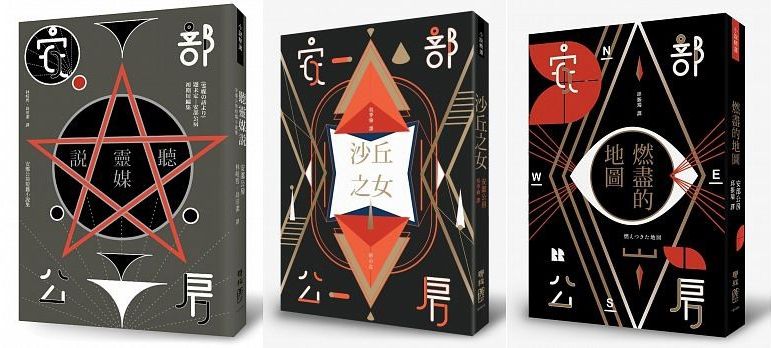
In 1951, the Abe public house was decorated with <Wall: S. Karma's Crimes> won the Akutagawa Prize and made a glorious appearance in the Japanese literary circle as the "Second Post-War School". Before winning the award, Abe, who was deeply influenced by existentialism and surrealism, has begun to try to use avant-garde techniques such as transformation and SF fantasy to show the unreasonable reversal between the daily reality and the surreal world, and the inversion of the real world. Human plight and alienation. Therefore, his works are full of strange scenes and absurd plots. He makes good use of symbolism to give special meanings, so as to expose the irrationality of human society and explore the way out.
In "The Wall", Abe described the story of a man who suddenly lost his name one morning and fell into a completely unreasonable life. Through this setting reminiscent of Kafka's "Metamorphosis", Abe tries to discuss the predicament and alienation of people after falling into loneliness.
This creative logic also continued to his later well-known masterpiece "Daughter of the Dune" (1962). The protagonist of "The Lady of the Dunes" is a man who collects insects on the sand dunes by the sea. As it gets late, he is tricked by an old man into a dilapidated house deep in the dunes. After realizing that he has fallen into a scam, the man tries to escape in various ways. Although he has experienced several failures, he never gives up his determination to escape. Until one day, the man finally successfully climbed out of the dune, but found that his heart had been integrated with the life of the dune for many years, and the man never wanted to leave the dune again.

When most readers read the above works, they discuss from the alienation of human beings and the alienation of modern society. However, as a "initiator" who was repatriated from "Manchuria", this is actually a metaphor for Abe's own identity crisis and the loss of his hometown.
Born in Anbe, Tokyo, in 1924, his father worked at Manchuria Medical University. He moved to Fengtian with his family the following year. He spent his entire childhood, primary school and middle school in Fengtian. During high school, Anbe returned to the "Mainland" to study, and began to live back and forth between Fengtian and Tokyo. After graduating from high school, he entered the Tokyo Imperial College of Medicine.
At the end of the war, due to the lack of food in Japan, he returned to Fengtian at the end of 1944 due to illness. In this way, the Abe family welcomed "the longest day in Japan" in Fengtian - August 15, 1945. In the autumn of 1946, the Abe family boarded a repatriation boat and landed in Sasebo, Nagasaki, to return to the "motherland".
Anbe rarely mentions this experience, except that he believes that writers should avoid telling their own experiences, so as not to change the bad faults of the "creative" experience, it may also be related to his experience of defeating Fengtian and being deported.

After Japan's defeat in the war, Anbe personally experienced the instant reversal of class and the instant destruction of the regime in Fengtian. They were driven out of their homes by the Soviet occupation forces and displaced. In the short two or three months that followed, the Kuomintang government came first, and then the Eighth Route Army came. He witnessed with his own eyes that the policies, regime and city appearance changed several times in a short period of time. After his father died at the end of 1945, Abe survived only by selling soda on the streets.
During the repatriation process, due to the outbreak of cholera on board, the repatriation ship was prohibited from entering Japan and was forced to anchor in the open sea for more than ten days. Diseases spread on the ship, cabins were messy, and daily necessities were scarce. Many repatriated people were on the verge of madness.
After learning about the special background of Abe, and re-examining the above two works, it is not difficult for us to find that there is a color of Abe's personal experience. Whether it's the man who lost his name overnight in "The Wall" or the man trapped in the dunes in "Daughter of the Dune", it may be seen as an avant-garde adaptation of Abe's own defeat experience. And the dune and the daughter of the dune that besieged the man vaguely hinted at Abe's familiar Manchurian customs and his "nostalgia". This is also the reason for the frequent appearance of dune images in his early works.
In "Signposts at the End of the Road" (1948), Anbe once said when he reflected on his relationship with his hometown through the mouth of the novel's narrator "I":
I do exist in this world. I was enduring the siege around me, and I existed like an object. But the existence of the hometown, and how far apart is this existence?
This kind of love-hate attitude towards "hometown", as well as refusal and welcome, permeates Abe's works in various forms, and spreads to the question of human identity and the nation-state.
In Abe’s seldom-discussed work, The Herds Searching for Homeland (1957), the protagonist Hisagi is alienated from the people around him. He was unable to find the Japanese area in Shenyang, and even though he was close, he still couldn't get in. When he finally found the Japanese area under the leadership of a Chinese youth , the Japanese rejected him because he did not have a certificate to prove his identity. Later, his documents were stolen by North Koreans , and Hisuki completely lost his identity and became stateless.
Abe borrowed from Hisagi's experience to question the inevitability between human identity and the nation-state. He believes that the relationship between the two is capricious and may even dissipate at any time. The root of this thinking comes from his experience of defeat and repatriation.
When thinking about the creative motif of "Who Am I", Anbe uses a lot of avant-garde brushwork to metaphorize the alienation and alienation of people in modern society, while also smuggling his doubts about the nation-state and personal identity. Taking his own experience as an example, when a person's class and identity can be reversed overnight; when the so-called "motherland" and "hometown" reject you as a sick other, you will not be able to enter, become nothing.
➤ The Death Fear of the Son of an Unknown Lieutenant: Akio Goto (1932~1999)
An infantry lieutenant reservist who ran a small grocery store in Yeongheung (now Gimye-gun, South Hamgyong, North Korea), on the Korean Peninsula, fled with his family to the "motherland" Japan after the collapse of the Great Japanese Empire. During this extremely difficult and treacherous repatriation process, the infantry lieutenant and his mother lost their lives one after another. The lieutenant's son, a 13-year-old boy, buried them both with his own hands. This boy was Akio Goto, an important member of the "Introverted Generation" of Japanese post-war literature.
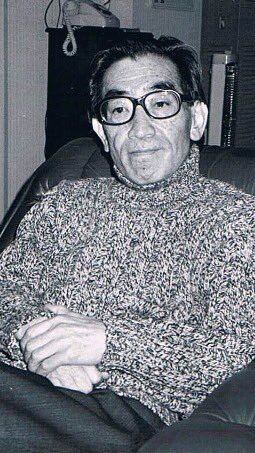
Goto's great-grandfather went to the Korean Peninsula to seek a living after the "Japan-South Korea merger", and the family took root in Yongxing after that. After graduating from Yongxing Ordinary High Elementary School (Japanese school), Goto entered the old Wonsan Public Middle School in April 1945. But what followed was the Yuyin broadcast on August 15, and overnight, the foreign country changed to the hometown. The 13-year-old Goto buries his relatives with his own hands, as well as the extremely tragic experience of defeat and repatriation. Since then, he has been haunting Goto like a dream, and it is reflected in his early creations.
In May 1946, after more than ten days of uninterrupted marching, the teenager Goto finally crossed the 38-degree line, boarded a repatriation boat back to his "homeland", settled in Fukuoka, and transferred to the old Fukuoka Prefectural Asakura Junior High School. In order to be "assimilated" to Japan as soon as possible, the boy worked very hard to learn the Chikuzen dialect commonly used in Fukuoka. After graduating from high school, Goto entered the Russian Literature Department of the Second Literature Department of Waseda University. During this time, he lingered on the works of Akutagawa Ryunosuke and Gogol, and his graduation thesis took Gogol as the research object. After that, Kafka's "Metamorphosis", "Trial", "Castle" and other works also had a great influence on him.
In November 1955, Goto made his debut in Japanese literary circles with his short story "Memory of Red and Black". This work, which was selected as the best work in the 4th Student Novel Competition (Note), has attracted much attention because of the evaluation by Yasunari Kawabata of the candidate works. This is the first work that even the writer himself regards as a study and does not pay much attention to it. If viewed from the perspective of Korea's experience of defeat and repatriation, it can be said to be the origin of Goto's creation, and it is of great significance.
The "Student Novel Competition" is a literary award for high school and college students, held every six months. The literary award has cultivated many important writers, such as Kenzaburo Oe, who won the best works in May 1955 and May 1956 with "The Gentle People" and "After Cremation" respectively.
"Memories of Red and Black" is narrated by a boy "I" who was born and raised in North Korea. The story begins with the death of "I" who experienced his great-grandfather when he was a child, and later experienced close relatives such as younger brother, aunt, Chunjiang and Xiaoying. of death. After entering middle school, when I read Edgar Allan Poe's short story "The Premature Burial", "I" thought of the death I had faced, which led to the question of death and even whether to "bury prematurely" my relatives at that time. of fear.
Therefore, in order to allow myself to truly die in an instant and not be "buried prematurely", "I"'s greatest wish is to become an aviation soldier. However, this wish was dashed when Japan was defeated. In the end, "I" who couldn't go to the air force and could not get the real death guarantee as desired, smoked a cigarette and tried to dye the "bright red lung lobes" black.
In this novel, Goto, through the narrator, shows his fear of death and a very special view of death: when people do not want to die, they are forced to face unexpected and ignorant personal choices. the greatest humiliation.
In addition, Edgar Allan Poe's appearance is not accidental. Edgar Allan Poe said in "The Premature Burial":
From the continuum of paranormal catastrophes of humanity, I can list many individual catastrophes that are more catastrophic in nature than these large-scale catastrophes. In fact, true misery—the ultimate misery—is unique, not universal. Terrible, ultimate suffering is always borne by individuals, not groups—let us thank a merciful God for that!
From this, we may also be able to read the implication that Goto wanted to express through Edgar Allan Poe—this kind of forced and abnormal death is often borne by individuals, not groups. The group mentioned here may be understood as a country.
When the work was published, it was unclear whether Goto's fears of "premature burial" and death were derived from his own real experience. It wasn't until more than a decade later, when the novel "The Son of an Unknown Lieutenant", based on his father, was published, that the brutal experience of young Goto in North Korea was not known.
However, like the other deportees, for Goto, the test of life was just about to begin.
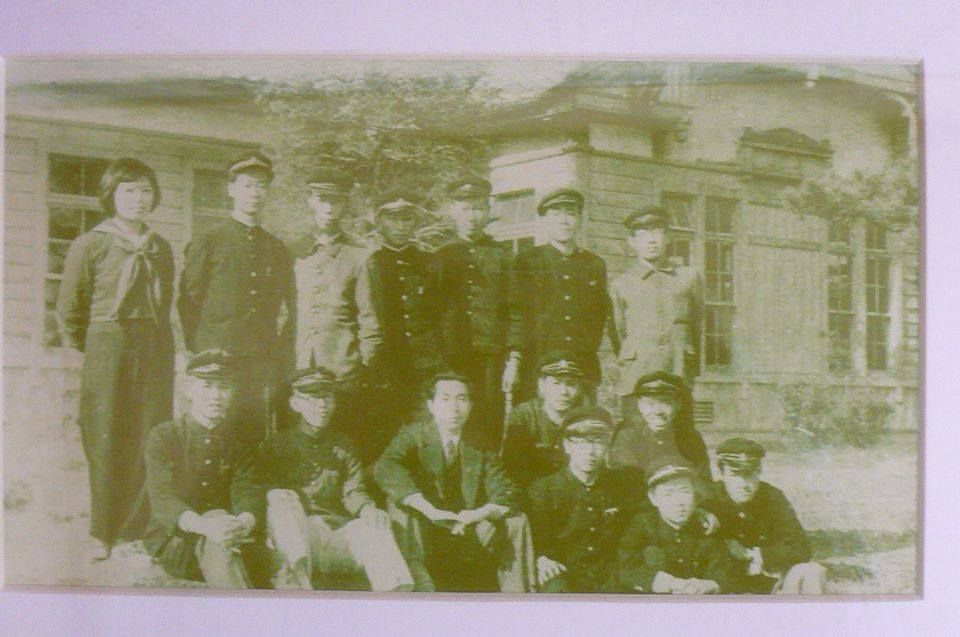
Four years after the publication of "Memories of Red and Black", Goto published "The Stranger" (original title "On the Hill", later renamed), which was the first time he faced his own experience in North Korea. In the novel, Goto takes Takeo, a fifth-grade elementary school student, as the protagonist, describing his life in North Korea.
Takeo was forced to play the role of a North Korean at the art fair. For this reason, he not only cried with his mother, but also deliberately bullied the North Korean servants at home to vent his anger. One day, Takeo and his friends planned to deceive a North Korean girl to the "German Church Hill", intending to teach her a good lesson, but another North Korean boy who did not know appeared that day. When the North Korean boy yelled at them, "Go back to Japan," Takeo beat the boy in fury until the German priest came forward to stop it.
On Korean soil, foreign Japanese teenagers beat local Korean teenagers, but a German priest had to stop them. Who is the "foreigner" in this land?
Through the role of Takao, Goto not only directly pierced the illusion of "equal treatment" constructed by the colonists, but also showed the dilemma of identity with the Japanese: before Japan was defeated, they were "Japanese in the North"; when Japan was defeated, After they were sent back to Japan, they found out that they were actually "Japanese in Japan" in their "homeland". This predicament of being unable to rely on both ends haunts Goto all the time, becoming a haunting ghost in Goto's literature.
In the 1970s, Goto launched a series of works such as "Who? >,<what? ”, “Neighbors” and other novels, the ghost of this stranger lingers in it all the time. By describing the relationship between the "introducers" and Danchi life, Goto deeply captured the process of these "introducers" gradually losing the memory of their "hometown" after the war, their desolate and chaotic psychological state, and their repeated exclusion from "the motherland" Japan. moment. Since then, they have become "Japanese people in Japan" who have lost their double hometowns, a rootless grass, while Danji/Japan has become a place of exile that erased their "hometown" memory.
Since then, Goto has continued to ask "I am now in Where?", "Do I have a place to return?" This is a unique problem for "foreigners".
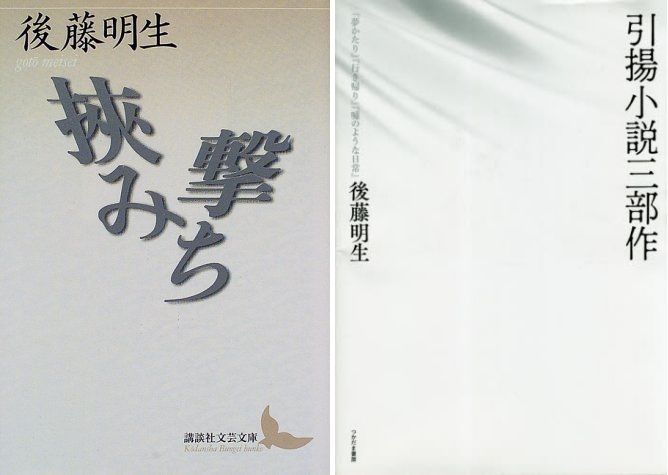
➤ Butterflies flying over the "East China Sea": Lin Jingzi (1930-2017)
Kyoko Hayashi, who won the 77th Akutagawa Award in 1975 for "Sacrificial Place", is well known for her own experience in the Nagasaki atomic bombing. But what many people don't know is that Lin Jingzi spent nearly 15 years as a child in Hongkou, Shanghai, before the explosion.
In August 1930, Lin Jingzi was born in Higashiyamatemachi, Nagasaki City. Due to his father's work, he moved to Shanghai with his family when he was less than one year old. After that, the whole family lived in the alley where the Chinese people lived together on Mile Road (now Emei Road) in Hongkou. The neighbors included the landlord, the old woman, the carpenter, the coolie, the prostitute, the patrol police and so on. They were the only Japanese family in the whole alley. Before returning to Nagasaki early in 1945, Lin Jingzi lived by the Huangpu River, and the terroir of the Huangpu River became an important part of her personality development.
In February 1945, Lin Jingzi's father bought a ticket in a hurry after learning that Japan might lose the war, and asked his wife to bring their three daughters back to Japan the next day. At that time, the waters between Shanghai and Nagasaki were covered with mines set up by the US military. For safety, they returned by land. Originally, it only took 24 hours to travel by water, but the land route had to travel from Shanghai to the northeast, then from the northeast through North Korea, and finally from North Korea to Nagasaki by boat. It took several days to get back to Nagasaki Isahaya.
Before this, Lin Jingzi had two short-term experiences of returning to Nagasaki to avoid the disaster of war, namely the "January 28 Incident" in 1932 and the Battle of Songhu in 1937. The former Lin Jingzi is too young to have memory; the latter is her first contact with the "Mainland". As for the Japanese life that started in March 1945, it can be said that Lin Jingzi really faced the "motherland" Japan, but the result was not very good.
The first conflict between Lin Jingzi and Japan was the transfer incident. Originally, her mother wanted to transfer her to Isahaya's middle school, but she was sternly rejected by the principal. The principal said bluntly, thinking that these people who had good food and drink "out of town" came back when there was a serious shortage of local food. Therefore, the transfer application was rejected coldly. Her mother had to look elsewhere, and finally transferred her to Nagasaki Prefectural High School for Girls, but it also made Lin Jingzi encounter August 9, 1945, the day the atomic bomb fell on Nagasaki, and became the victim of the explosion.
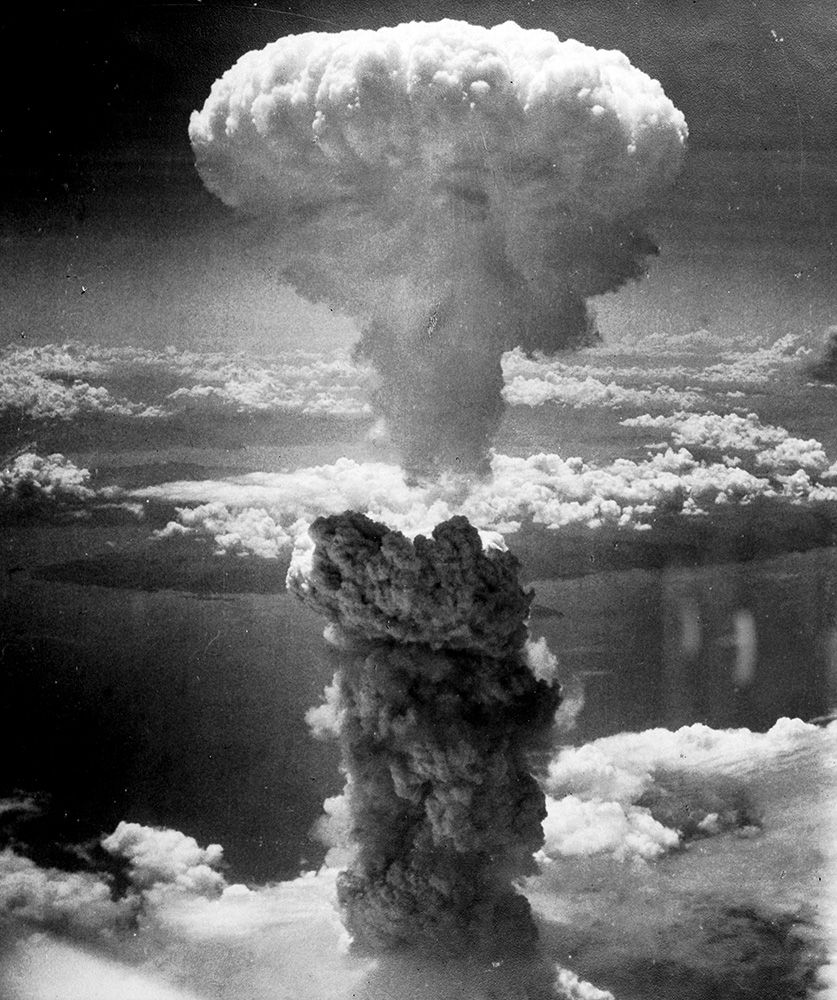
On the other hand, Lin Jingzi, who was enrolled in school, also found language problems with his classmates around him. Although both are Japanese, there is a big gap between Lin Jingzi's Japanese and the Japanese of other students. One is that Lin Jingzi does not speak the Nagasaki dialect very well, and the cadence of the standard language is not the same as that of "Mainland"; the other is that Lin Jingzi's imagination of Chinese characters comes from the customs of mainland China. The understanding of the Chinese character "河" or "川") is a big river like the Huangpu River, not a trickle in the Japanese haiku world. The language gap makes Lin Jingzi, who has just returned to the "motherland", taste the feeling of being rejected again.
In addition, the identity of the person who was bombed also made Lin Jingzi repeatedly discriminated against and excluded from the "motherland" in his later life. After she got married and had children, and learned that nuclear radiation could harm the next generation, the pressure grew. She said many times in the future that her life was divided into two halves by August 9, 1945. The first half of life in Shanghai was a stable, sunny, positive era of happiness, and the life after the explosion was a negative and marginal era.
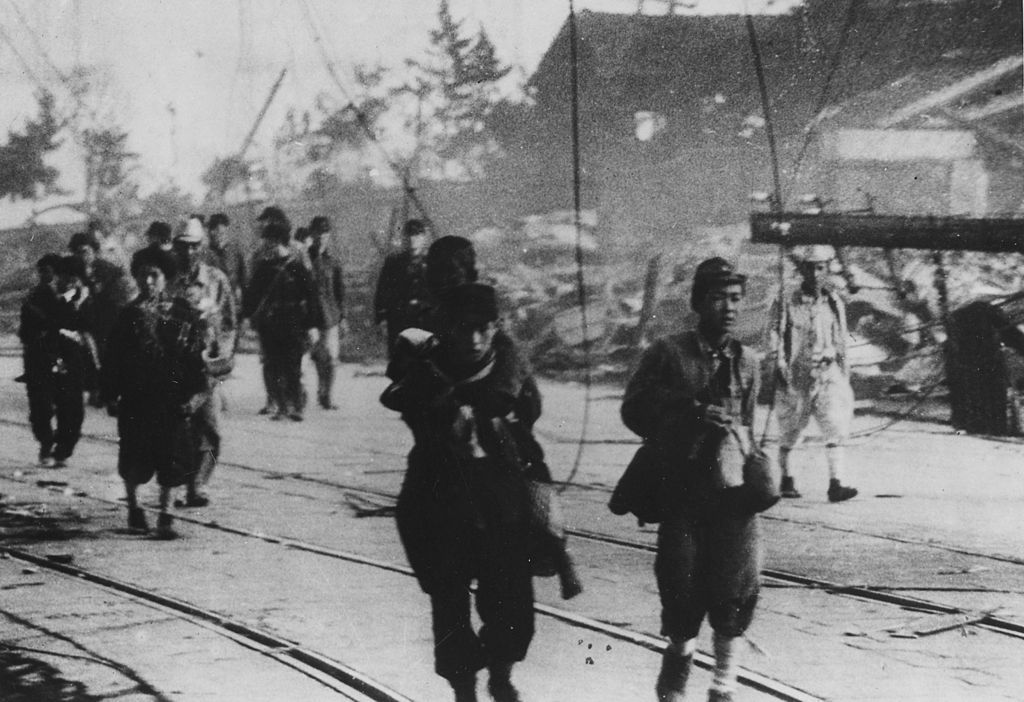
After Nagasaki was bombed, Lin Jingzi was wandering between life and death for a long time, and he had no time to take care of him. Until the restoration of diplomatic relations between China and Japan in 1972, the longing for Shanghai buried deep in her heart jumped out of her heart. But listening to the TV news, the cheers of "long live, long live" from the businessmen who could finally do business with China reminded her of the constant stream of Japanese army boots she heard in Shanghai when she was a child. There are many hesitations in returning to Shanghai.
With the resumption of diplomatic relations between China and Japan, a boom in "introduction of literature" arose in Japan. Driven by the popularity of Fujiwara's "introduction" memoir "Meteor Still", many deportees wrote down their "introduction" experiences. Created a wave of "incentive" memoirs published. This "incentive" writing craze may also lead to Lin Jingzi's creative energy. She began to write about her Shanghai alley experience and published her autobiographical novel "Michelle's Lipstick" in 1979.
Different from "Yi Yang" memoirs like "The Meteor Is Still", in "Michelle's Lipstick", in addition to seeing Lin Jingzi's nostalgia for "hometown" Shanghai, we can also see that she uses a child's perspective to outline The multiple spaces and wrestling relationships between the dominant/aggressor and the dominated/invaded in Shanghai. However, even in this unbalanced relationship, Miller Road is still in her mind the Sino-Japanese utopia.
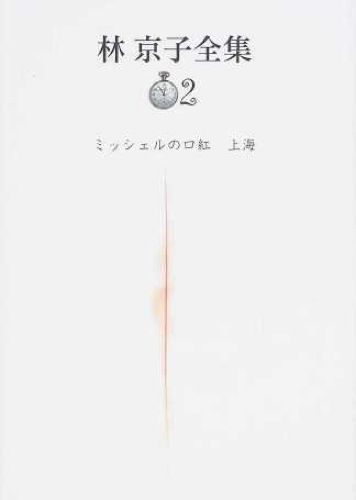
In August 1981, Lin Jingzi finally made up his mind and participated in Shanghai. The tour group for the five-day tour of Suzhou returned to Shanghai, which had been in violation for 36 years. After returning to Japan, she resorted to writing this travel account of Shanghai in New China, and published her novel "Shanghai" in July of the following year. In this book, Lin Jingzi, through the narrator "I", expresses her hesitation about returning to her "hometown" Shanghai, her timidity before returning to her hometown, and finally discovering the gap between the Shanghai of New China and the Shanghai of her childhood. . She is keenly aware that the Shanghai of her childhood is long gone.
At this time, due to the internal entanglement of Japan's anti-nuclear movement, the influence of three years of American life, plus the situation of the Cold War and the changes in Sino-Japanese relations, Lin Jingzi's eyes on Shanghai have gradually expanded and deepened. In "Yellow Sand" (1988), Lin Jingzi pointed out the "internal exclusion" of the Japanese community through the role of the Japanese prostitute A Qing.
This discussion is also related to her experience as a bomber, a returnee from "out-of-town" - whether it is A Qing, a Japanese prostitute whose body has been "contaminated" by Chinese coolies, or her body has been "contaminated" by "out-of-town" and nuclear radiation Lin Jingzi, they have all deviated from the track of "pure" Japanese, and they have become objects that must be excluded from the Japanese mainland.
In "Masquerade" (1997), Lin Jingzi used the experience of returning to Shanghai to visit his "hometown" with his former classmates, depicting the "hometown" Shanghai's rejection of the Japanese "nostalgia". Through the rejection of the "hometown" by the narrator "I" of the novel, Lin Jingzi made "I" deeply realize that he has not yet gotten rid of the dominant consciousness, and further felt the guilt that he/Japan was the dominant/aggressor.
Lin Jingzi suddenly realized that the "hometown" in his heart is still a fictional element constructed by the ruler/aggressor, and he has never escaped from the side of the ruler/aggressor. Since then, Lin Jingzi's sunny "hometown" Shanghai has undergone a qualitative change. This second trip to Shanghai after a lapse of 15 years has completely exceeded the setting, from the original nostalgic trip to a torture trip to confirm the responsibility of the "perpetrator". In the past in "Michelle's Lipstick" and "Shanghai", Lin Jingzi's admiring gaze, and the "hometown" Shanghai that this gaze stared at, collapsed.
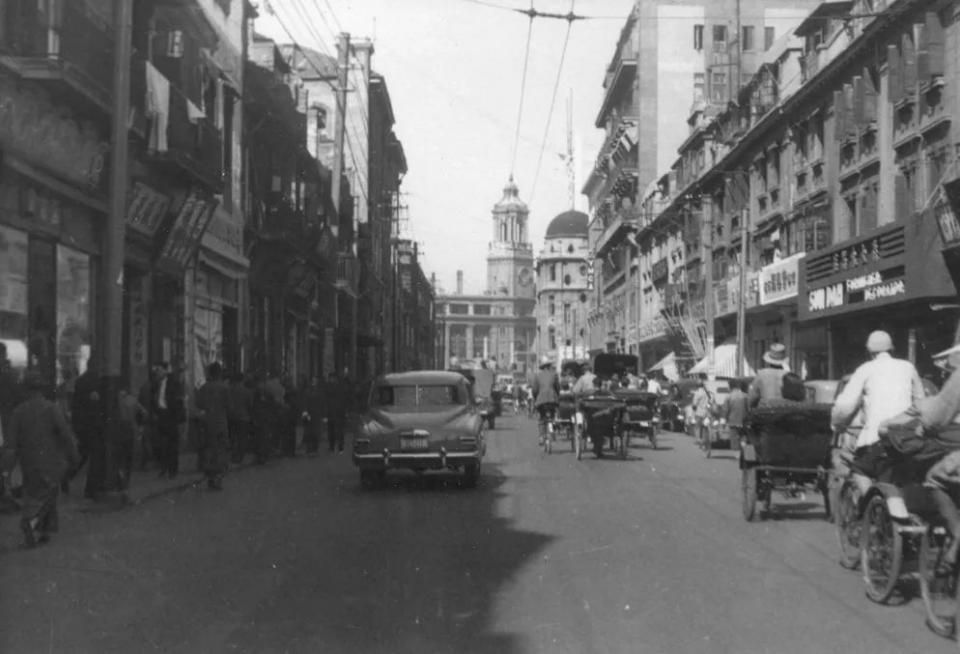
At the end of the novel, "I" has lost the courage to enter Miller Road, and can only carry the guilt of being the "perpetrator". In Miller Road, "my "holy place", it is also my "shame". ” He stood there, waiting to confess to Mingjing, his childhood playmate. However, Mingjing will never appear. And "I" also understands that this is not something that can be solved with "I'm sorry", and even saying "I'm sorry" seems too frivolous.
After that, Lin Jingzi never set foot in Shanghai for the rest of his life, and the output of his writing in Shanghai also dropped sharply.
In 1998, after referring to a lot of materials, Lin Jingzi wrote the novel "Scheduled Time", trying to outline the mental outlook of Japanese intellectuals in Shanghai during the war, in order to sort out the "Shanghai" that he did not understand and had never participated in. For a long time after that, Lin Jingzi only published a few essays about Shanghai sporadically. It was not until 2006, on the 60th anniversary issue of Group Portrait magazine, that Lin Jingzi published his short story "La La La, La La La," with the theme of Shanghai alley life. However, here, Lin Jingzi calls the narrator "I" the "son of the Orientals in the alley", and through the role of the Chinese girl "Bobo", he disintegrates the illusion of a Sino-Japanese utopia on Miller Road.
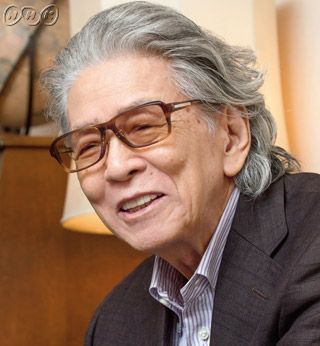
The essayist Hiroyuki Itsuki, who was in Pyongyang when Japan lost the war, once said in his article "Ideas of Colonial Repatriation Faction":
Speaking of which, we came to this land as a family of oppressors, but in it, the old stereotypes of class antagonisms that existed on the Japanese mainland still exist intact. Fleeing to the colony because of poverty, but being in the position of the ruling class relative to other peoples in that land, was such a strange dual structure at the time.
Itsuki also mentioned that if the "inland" is such a good place, why did the parents leave Japan to come to the colonies?
In this regard, Japanese literary critic Hideki Ozaki, in "Speech of the "Colonial Repatriation Faction", believes that these statements of Wugi are exactly the voice of the "non-heroic glorious escape" generation. And isn't this also the voice of the generation of Abe Kobo, Goto Akio and Lin Jingzi. Starting from this, we reconsider these three different cases of repatriation in the history of contemporary Japanese literature, and it is not difficult to find that this kind of “colonial scars” is not only inscribed in the colonies, but also in the colonial master Japan.
As the descendants of the former colonies, how should we think about these three cases and their literary creations, as well as Ozawa's "Happy New Year" sentence mentioned at the beginning, of course, when we liquidate the history of the colonies, we have to face it. the subject. This not only helps us deeply grasp the issue of colonization/colonized, but also contains the energy to help the colonizers truly decolonize and the colonized to completely decolonize. ●( The original text was first published on the OPENBOOK official website on 2018-08-27)
Like my work? Don't forget to support and clap, let me know that you are with me on the road of creation. Keep this enthusiasm together!

- Author
- More